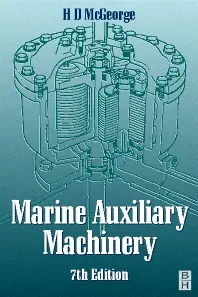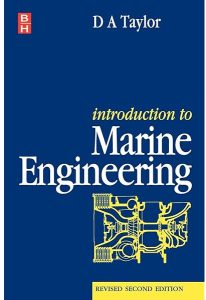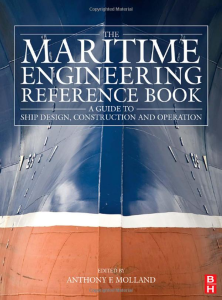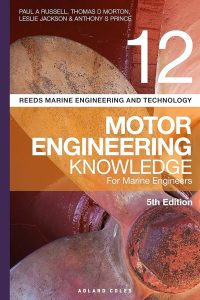Marine ship engineers play a critical role in ensuring the operational efficiency and safety of vessels at sea. They manage the ship’s machinery, propulsion systems, and auxiliary equipment while adhering to international safety and environmental standards. To excel in this demanding profession, ship engineers must rely on industry-recognized books and tools that provide technical knowledge, practical insights, and problem-solving techniques.
This article highlights the top-rated books and essential tools for marine ship engineers, supported by examples, real-world applications, and industry best practices.

Top-Rated Books for Marine Ship Engineers
Technical books remain indispensable for marine engineers, offering comprehensive coverage of ship systems, maintenance practices, and industry standards. The following books have earned a strong reputation in the maritime industry:
1. Marine Auxiliary Machinery by H.D. McGeorge
This classic reference is a cornerstone for marine engineers. It covers key shipboard systems such as boilers, pumps, compressors, refrigeration units, and fuel management systems. Complex mechanical processes are explained with clear diagrams and practical maintenance tips, making it invaluable for both beginners and experienced engineers. Example: Engineering cadets preparing for their Officer of the Watch (OOW) exams frequently use this book to strengthen their understanding of auxiliary systems, ensuring successful competency assessments. Why It’s Valuable:
- Detailed coverage of auxiliary systems and machinery operations.
- Real-world maintenance procedures for troubleshooting shipboard issues.
2. Marine Engineering Workbook by William Hayler
This workbook provides technical exercises, problem-solving scenarios, and practical examples. It covers key areas such as marine propulsion, power systems, and engine performance. Its format is ideal for exam preparation and real-life troubleshooting. Case Study: A group of marine engineers from a global shipping company incorporated this workbook into their training program, improving their overall exam pass rate by 20% within six months. Why It’s Valuable:
- Practical exercises for understanding ship propulsion and maintenance.
- Designed for competency-based training and certification exams.
3. Introduction to Marine Engineering by D.A. Taylor
This book provides a clear introduction to marine engineering principles, including propulsion systems, engine room equipment, ship construction, and maintenance procedures. It is ideal for beginners entering the maritime industry.Example: Engineering cadets studying at the Australian Maritime College (AMC) frequently use this book as a primary reference during their first year of maritime engineering courses. Why It’s Valuable:
- Comprehensive coverage of engine room operations.
- Written in a clear, easy-to-understand style.
4. Marine Diesel Engines: Maintenance, Troubleshooting, and Repair by Nigel Calder
Focusing specifically on diesel engine systems, this book provides hands-on troubleshooting guides, repair procedures, and maintenance schedules. It covers fuel systems, cooling systems, and electrical components in detail. Case Study: A maintenance team on a bulk carrier experienced an engine failure while crossing the Indian Ocean. Using troubleshooting methods from this book, they quickly identified a faulty fuel injector and restored engine functionality within hours. Why It’s Valuable:
- Step-by-step maintenance and troubleshooting guides.
- Detailed diagrams and fault-finding procedures.
5. The Motor Ship Reference Book by Various Authors
This comprehensive guide covers ship machinery, propulsion technologies, and electrical systems in depth. It is highly recommended for Chief Engineers and ship superintendents overseeing large commercial fleets. Example: Fleet managers overseeing advanced vessels often rely on this reference for technical updates and regulatory compliance guidelines. Why It’s Valuable:
- Covers modern propulsion technologies like LNG engines and hybrid propulsion systems.
- Regularly updated with the latest industry standards and technological advancements.






–
6. Ship Stability for Masters and Mates by D.R.J. Eyres
7. Marine Electrical Equipment and Practice by H. D. McGeorge
8. Principles of Naval Architecture by Edward V. Lewis
9. Reeds Marine Engineering Series: Volume 1-8 by Various Authors
10. Ship Construction by David J. Eyres
11. Basic Ship Theory by K. J. Rawson and E. C. Tupper
12. Applied Thermodynamics for Marine Systems by D. A. Taylor
13. Marine Propellers and Propulsion by John Carlton
14. Marine Hydrodynamics by John N. Newman
15. Machinery Handbook by Industrial Press
16. Introduction to Naval Architecture by Thomas C. Gillmer
17. Diesel Engine Reference Book by Bernard Challen
18. Marine Boilers by G.T.H. Flanagan
19. Ship Design and Construction by The Society of Naval Architects and Marine Engineers (SNAME)
For marine ship engineers, having access to industry-recognized books and essential tools is vital for achieving operational efficiency and ensuring ship safety. From technical guides and troubleshooting manuals to diagnostic tools and modern monitoring systems, these resources enhance the capabilities of ship engineers, enabling them to manage complex shipboard systems effectively. Continuous learning, combined with practical experience, ensures maritime professionals remain equipped to handle the ever-evolving challenges of modern marine engineering.

